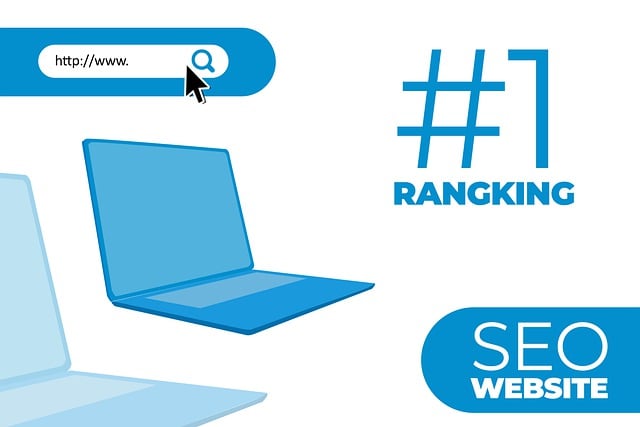Identifying and understanding target audiences is key to digital marketing success, as emphasized by Practical SEO Workshops. These sessions teach keyword research through tools like SEMrush or Ahrefs, enabling businesses to uncover competitor strategies, high-performing keywords, and content formats. Participants learn on-page optimization techniques, such as strategically placing keywords in critical web page sections, to boost website visibility and search engine rankings. Off-page strategies, including link building and influencer outreach, are also covered to attract natural backlinks. Measuring keyword performance using analytics tools is vital for refining SEO strategies continuously. Practical SEO Workshops provide advanced techniques beyond basic research, focusing on user intent, long-tail keywords, and algorithm updates to ensure ongoing digital success.
“Unleash your SEO potential with our comprehensive ‘Keyword Research Practical Training’ article. This guide is designed as an extensive workshop, covering every aspect of keyword research essential for digital marketing success. From understanding the core principles of SEO to advanced strategies, we’ll navigate through identifying target audiences, utilizing powerful tools, and analyzing competitors. Learn the art of optimizing on-page elements, exploring off-page tactics, and measuring performance. Our practical approach ensures you’re equipped with the skills for continuous SEO growth through effective keyword research techniques.”
Understanding Keyword Research: The Foundation of SEO

Keyword research is a fundamental aspect of Search Engine Optimization (SEO) that involves understanding user search behavior and identifying relevant terms to optimize online content. It serves as the cornerstone for any successful SEO strategy, guiding the creation of effective content that resonates with target audiences. Through practical SEO workshops, aspiring digital marketers gain invaluable insights into this process, learning how to unearth valuable keywords that drive organic traffic.
These workshops often demystify complex concepts, teaching participants to utilize various tools and techniques to analyze search trends, assess keyword difficulty, and determine the right balance between search volume and competition. By mastering these skills, individuals are empowered to create content that not only ranks higher in search engine results but also delivers meaningful experiences to users, ultimately enhancing overall online visibility and performance.
Identifying Target Audiences and Their Search Behavior

Identifying your target audience is a cornerstone in any successful digital marketing strategy, and keyword research plays a pivotal role in this process. Practical SEO workshops often emphasize the importance of understanding search behavior patterns among potential customers. By analyzing online trends and exploring relevant keywords, businesses can gain valuable insights into what their ideal audience is searching for, when, and where.
This involves delving into demographics, interests, and pain points to create buyer personas that represent distinct groups within your target market. With these personas in hand, marketers can tailor content and optimize it around specific search terms, ensuring that when potential customers seek solutions, they find the brand at the forefront of relevant search results.
Utilizing Keyword Research Tools Effectively

In today’s digital era, effective keyword research is a cornerstone for successful online content creation and marketing strategies. Utilizing specialized tools like Google Keyword Planner, Ahrefs, SEMrush, or Moz can significantly enhance this process. These platforms provide valuable insights into search trends, competition levels, and user intent behind specific keywords. For instance, practical SEO workshops often emphasize the importance of finding long-tail keywords—phrases that are more specific and less competitive, yet attract a targeted audience.
By leveraging these tools, content creators and marketers can make informed decisions about which keywords to target in their content. They can uncover hidden opportunities, identify high-volume keywords with manageable competition, and gain a deeper understanding of user search behavior. This strategic approach ensures that content is optimized for both search engines and end-users, boosting the chances of ranking higher in search results and attracting organic traffic—key objectives of any successful digital marketing campaign.
Conducting Competitor Analysis for Keyword Insights

Conducting a thorough competitor analysis is an invaluable step in any practical SEO workshop, as it provides a wealth of insights into keyword strategies that can shape your own approach. By examining the keywords and content strategies of your competitors, you gain a competitive edge. Tools like SEMrush or Ahrefs allow you to spy on their top-performing keywords, backlink profiles, and even content formats. This analysis reveals which keywords are driving traffic and conversions for them, highlighting opportunities you might have overlooked.
For instance, you can identify long-tail keywords that your competitors rank for but you don’t. These often more specific terms have lower search volumes but also face less competition, presenting a chance to capture a niche audience. Additionally, understanding how your rivals structure their content and optimize it around particular themes can inspire new ideas for your own keyword research and content creation, ensuring your website stays competitive in the digital landscape.
Differentiating Short-Tail vs Long-Tail Keywords

Optimizing On-Page Elements with Keywords

In the realm of Practical SEO Workshops, optimizing on-page elements is a fundamental step in enhancing website visibility and search engine rankings. This process involves strategically integrating targeted keywords into critical sections of web pages to align content with user queries. Keywords play a pivotal role in guiding both search engines and potential visitors, ensuring that your online content resonates with the right audience.
By scrutinizing relevant keywords and incorporating them naturally within titles, headings, meta descriptions, and body text, you can significantly improve your site’s SEO performance. These on-page optimizations act as a bridge between your content and the intent behind user searches, making your website more attractive to search engines and increasing the likelihood of appearing in top search results.
Exploring Off-Page Strategies and Link Building

In the realm of Practical SEO Workshops, understanding off-page strategies is paramount for enhancing search engine visibility. These strategies focus on activities outside your website to improve its authority and relevance in the digital landscape. One key aspect is link building, where the goal is to acquire high-quality backlinks from reputable sources. This involves a strategic approach, such as guest blogging, influencer outreach, and creating engaging content that naturally attracts links.
Effective link building requires a delicate balance between natural acquisition and strategic outreach. By participating in practical workshops, learners can gain hands-on experience in identifying relevant websites for link opportunities, negotiating partnerships, and implementing techniques to ensure the acquired links are of high quality and beneficial for long-term SEO success.
Measuring Keyword Performance and Adjusting Strategy

Measuring Keyword Performance is a crucial step in any SEO strategy, especially after implementing practical SEO workshops and training. By analyzing keyword rankings, click-through rates (CTRs), and conversion metrics, marketers can gain valuable insights into what’s working and where adjustments are needed. Tools like Google Analytics and Search Console provide detailed reports on keyword visibility, helping to identify high-performing keywords that drive organic traffic and those that need optimization.
Adjusting the SEO strategy based on performance data is essential for continuous improvement. This may involve refining content targeting specific keywords, optimizing meta titles and descriptions, or even pivoting towards new keywords with higher potential. Regular monitoring ensures that the keyword research stays relevant and aligns with the evolving search landscape, ultimately enhancing the overall effectiveness of digital marketing campaigns.
Advanced Techniques for Continuous SEO Growth

In today’s digital landscape, continuous SEO growth is non-negotiable for online success. Advanced techniques go beyond basic keyword research to include on-page optimization strategies tailored to specific user queries. Through practical SEO workshops, professionals can master tools like semantic analysis and intent recognition, enabling them to create content that resonates with searcher intentions. These workshops equip participants with the skills to identify long-tail keywords and incorporate them naturally into well-structured, high-quality content.
Moreover, staying abreast of algorithm updates is crucial for sustained growth. SEO practitioners can enhance their strategies by understanding Google’s emphasis on user experience and fresh, reliable information. Regularly attending practical SEO workshops ensures professionals are equipped with the latest tools and insights needed to navigate this ever-evolving field, fostering continuous improvement and organic growth.
